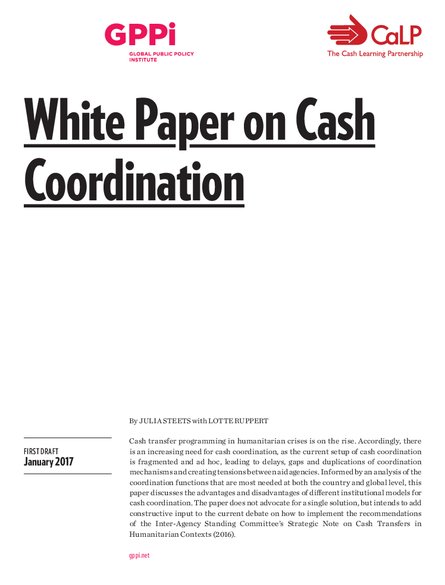
As more agencies are using cash transfer programming in humanitarian contexts, the need for coordination has grown. Aid organizations have set up cash working groups in many emergency settings that often differ in terms of leadership and institutional setup. This ad hoc approach has helped provide important technical coordination functions, but it has major shortcomings: it can take a long time to agree on a suitable setup, and sometimes multiple cash coordination fora with overlapping functions exist. In addition, cash working groups often only address the technical side of cash delivery, rather than strategic aspects – such as deciding which mix of cash and in-kind interventions is most appropriate or creating links to longer-term social protection programs. Lastly, cash coordination at the global level remains fragmented.
This paper does not seek to create consensus or advocate for a single solution. Instead, this process aims to build on the work done for the IASC Principals and to ensure that relevant stakeholders are involved in analyzing and developing potential solutions.
